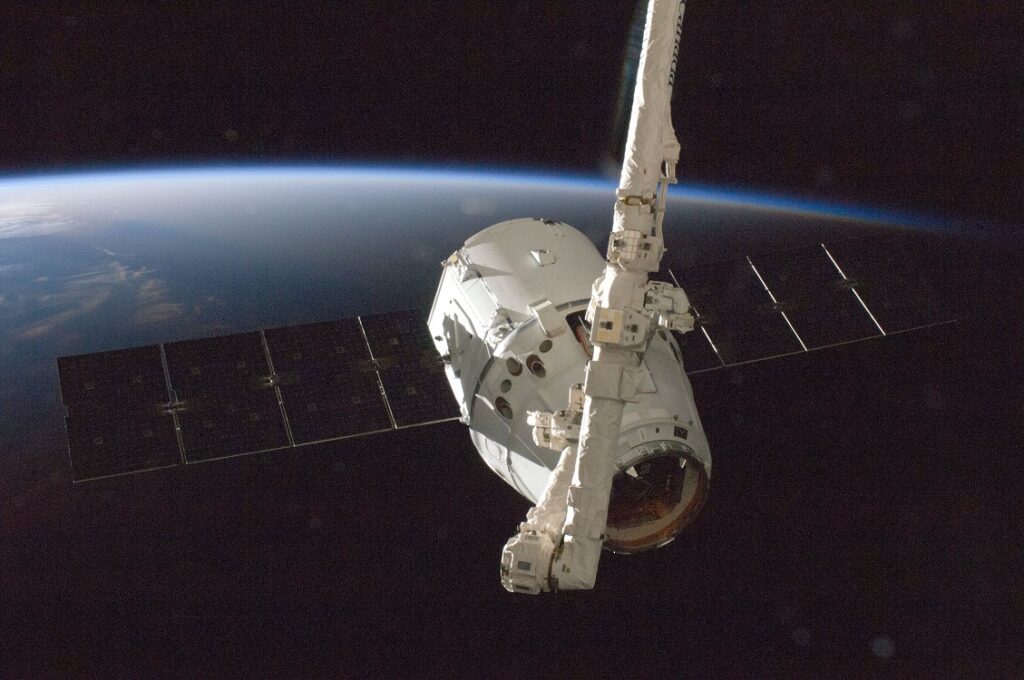Many European countries are in a race to see who will be the first to launch a rocket into space from their native soil. Britain may have the conditions in place for UK rockets to take off ahead of the competition.
Regulations tabled in the UK’s Parliament in May of this year promise to open the country’s doors to a new era for the British space industry. The plans help clear the way for the proposed constructions of a series of commercial spaceports across the British Isles in Cornwall, Scotland and Wales. Nestled in the majestic surroundings of the Scottish Highlands, the area of Sutherland is on track to host the first spaceport in the country capable of vertical rocket launch. One British aerospace firm already has plans to launch its latest rockets from the site powered by engines manufactured with 3D-printed components. If everything falls into place, it’s hoped that UK rockets will be ready to launch from sites on British soil as early as 2022.
UK transport secretary Grant Shapps described the motion as a “pivotal moment” for the country’s development as a major player in the global space industry. “Since the start of the spaceflight programme in 2017, we have been clear that we want to be the first country to launch into orbit from Europe”, he stated. “The laying of these regulations puts us firmly on track to see the first UK launches take place from 2022, unlocking a new era in commercial spaceflight for all four corners of our nation”.
Conditions in Place for UK Rockets to Launch
The legislation is due to come into effect this summer, to help encourage the development of the commercial space sector and hasten the launch of UK rockets from the nation’s soil. Some of the technologies expected to benefit from this legislation include conventional vertical takeoff rockets, along with more left-field launch systems such as high-altitude space balloons and spaceplanes. There are also hopes that the legislation will help bring tertiary benefits across the country’s economy by helping in the creation of new skilled jobs in construction and engineering, along with uplifting local economies. This might include infrastructure like road development in the areas targeted for spaceport construction.
Last, but not least, it’s also hoped that a new sense of purpose in the UK space industry will help capture the country’s popular imagination and inspire the next generation of scientific minds to become engineers and space technologists. If UK rockets are indeed the first to be launched from Europe, it’s likely that this effect will be considerably enhanced, and become a new feather in the cap of British national pride. It’s hoped that the legislation will also lay the groundwork for more long-term speculative developments in the space industry. These might eventually include sub-orbital space tourism services being delivered from UK spaceports, and possibly infrastructure to allow for hypersonic flight.
British Firms Poised to Launch UK Rockets
One British space CEO said that the three requirements to successful launch were a spaceport, rocket, and an accommodating regulatory environment. With all three conditions appearing to have been met, he asserts that British space companies will be in a position to finally start launching rockets by 2022. Planning permission has already been issued for a spaceport in Scotland. The British space industry hopes that the floodgates have finally been opened by the British government, so that regulations and licenses will quickly follow to allow UK rockets to fire as quickly as possible.
The regulation comes as a continuation of the latest iteration of the British government’s space programme. The initiative is responsible for the recent efforts to rescue the OneWeb satellite company from bankruptcy in 2020 to enable it to launch a constellation of communications satellites into low-Earth orbit for the provision of satellite broadband services. The programme has also had a role in planning for the construction of spaceports such as the Shetland Space Centre, Space Hub Sutherland, and Spaceport Cornwall. Together, these locations will help launch the UK rockets for the next generation of British space companies. The finer points of the new regulations have been drawn up by the UK Space Agency, the government’s regulatory body created in 2010 to replace the previous British National Space Centre.
In previous decades, the British government displayed a reluctance to commit to the development of the space industry. For example, it didn’t contribute funding to operating the International Space Station until 2011. However, there appears to have been a fundamental change in attitudes within the last decade or so. Today, the government appears keen to put more UK rockets into space to underline its entrepreneur-friendly business policies and secure more of the valuable global market for commercial space technology.
Final Thoughts
While Britain has yet to develop a company on the level of the bigger players in America, it’s worth noting that Britain has historically overachieved with its contributions to science and technology. The UK appears to have all the conditions in place for a booming space industry to rise, and with the support of the government, UK rockets may be taking to the skies in the very near future. Do you think UK rockets will be the first to launch from Europe? Let us know in the comments section below.
